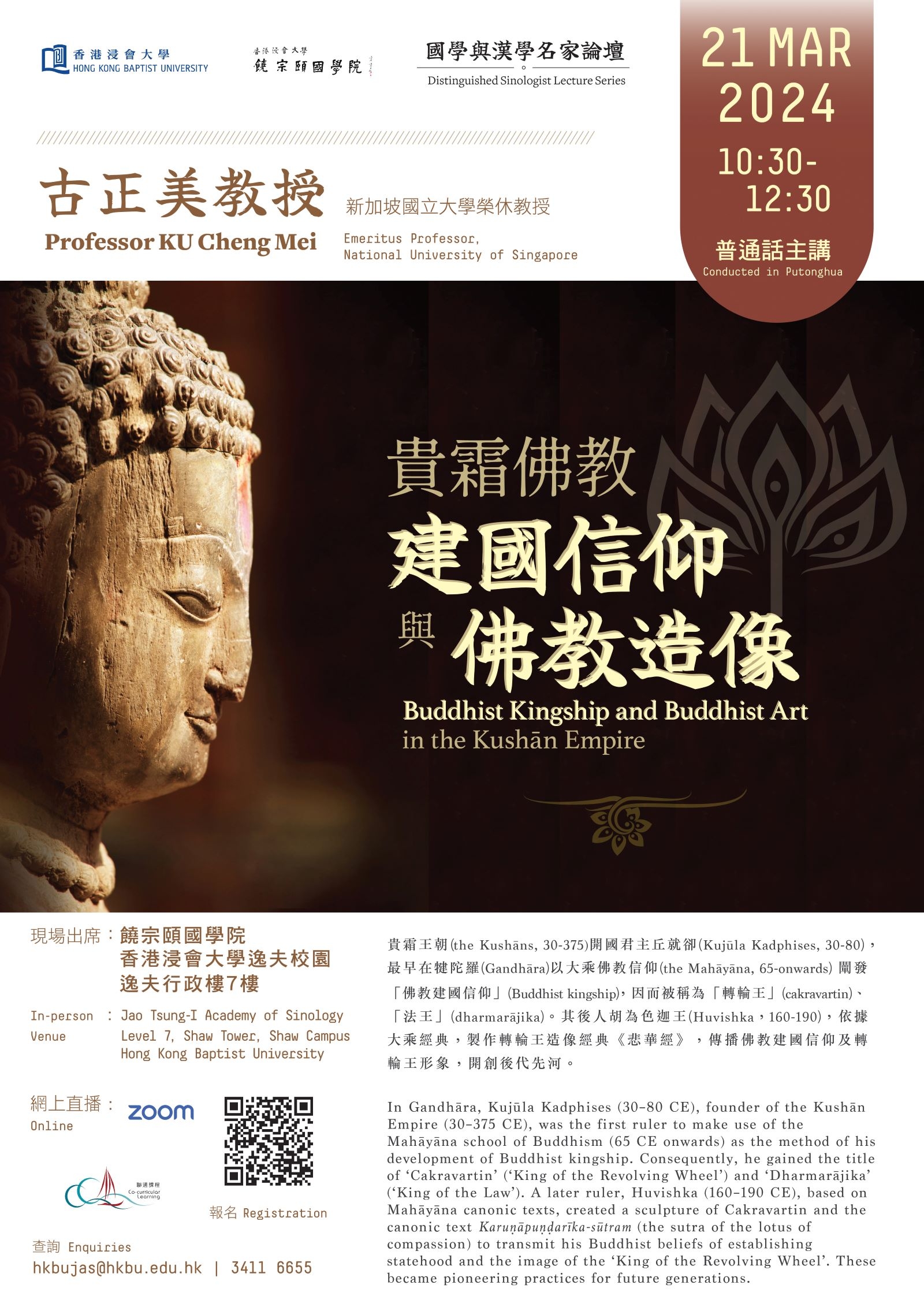
The Academy is honoured to invite Professor KU Cheng Mei, the emeritus Professor from National University of Singapore, to speak for 2024 Distinguished Sinologist Lecture Series with below details:
Buddhist Kingship and Buddhist Art in the Kushān Empire
2024/3/21 | 10:30–12:30 | Conducted in Putonghua
Speaker: Professor KU Cheng Mei
In-person Venue: Jao Tsung-I Academy of Sinology, Level 7, Shaw Tower, Shaw Campus, Hong Kong Baptist University
Registration: https://forms.office.com/r/waAf9eiEvK
Online: Zoom: https://hkbu.zoom.us/j/91432126649?pwd=ZTF0L0hsNEIyMjhMNWFnWGM0bGU5UT09
Meeting ID: 914 3212 6649
Password: 878288
Abstract: In his capital Gandhāra, Kujūla Kadphises (30–80 CE), founder of the Kushan Empire (30–375 CE), was the first ruler in ancient Asia to make use of the newly-flourishing Mahāyāna school of Buddhism (65 CE onwards) and its implementation of the law, for example the Prajñāpāramitās and the Ten Bodhisattva Prātimoks̖as, as the strictures and method of his development of Buddhist kingship. Because he had founded his empire firmly grounded in Mahāyāna Buddhism, in addition to assuming the title of ‘Cakravartin’ (‘King of the Revolving Wheel’), Kujūla also took for himself other titles that included ‘Dharmarājika’ (‘King of the Law’). A later ruler, Huvishka (160–190 CE), whilst acting according to the strictures and method of ‘Buddhist beliefs to establish statehood’ circulated as written in Mahāyāna canonic texts, created a sculpture of the ‘Kingship of the Revolving Wheel’ and the canonic text Karuṇāpuṇḍarīka-sūtram (the sutra of the lotus of compassion) and to transmit and circulate the strictures of his Buddhist beliefs to establish statehood and an image as the ‘King of the Revolving Wheel’. This, then, was the threshold for entry into the later practice of Asian rulers and their implementation of Mahāyāna Buddhist beliefs to establish statehood, and all simultaneously employed canonic (scriptural) and sculptural methods, and this in turn was the reason why they employed equivalent methods to transmit and circulate the images of the ‘kingship of the revolving wheel’ and the notion of ‘Buddhist beliefs to establish statehood’.
HKBU students: For CCL attendance, please (1) log in Zoom using HKBU email account, with your name as "STUDENT ID NO. + NAME", and (2) complete and submit the Co‐curricular Learning Evaluation Form after the activity in 3 working days.
Note: A CCL-recognised event must be at least 1.5 hours long. Please observe the requirements if students wish to update the attendance record.